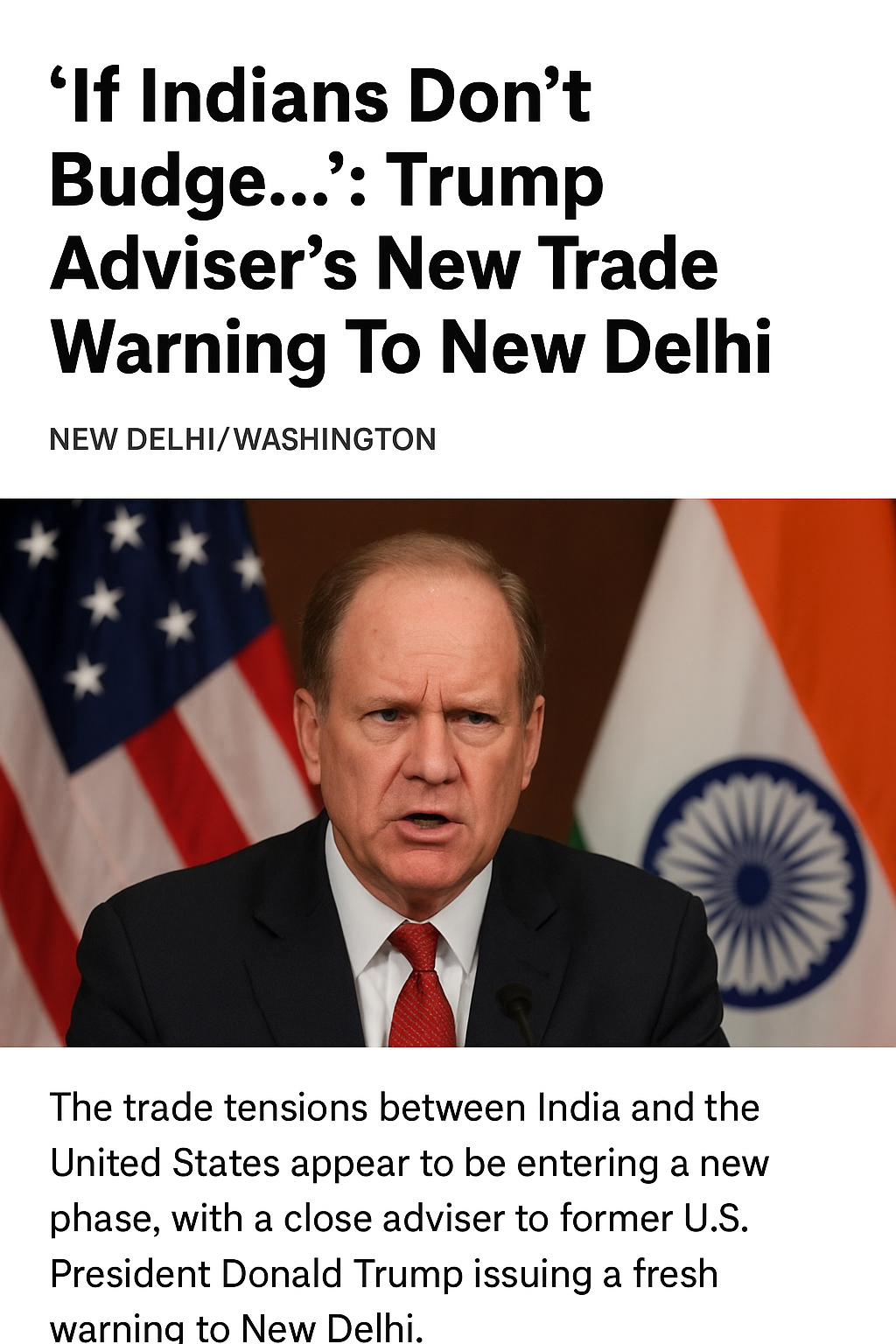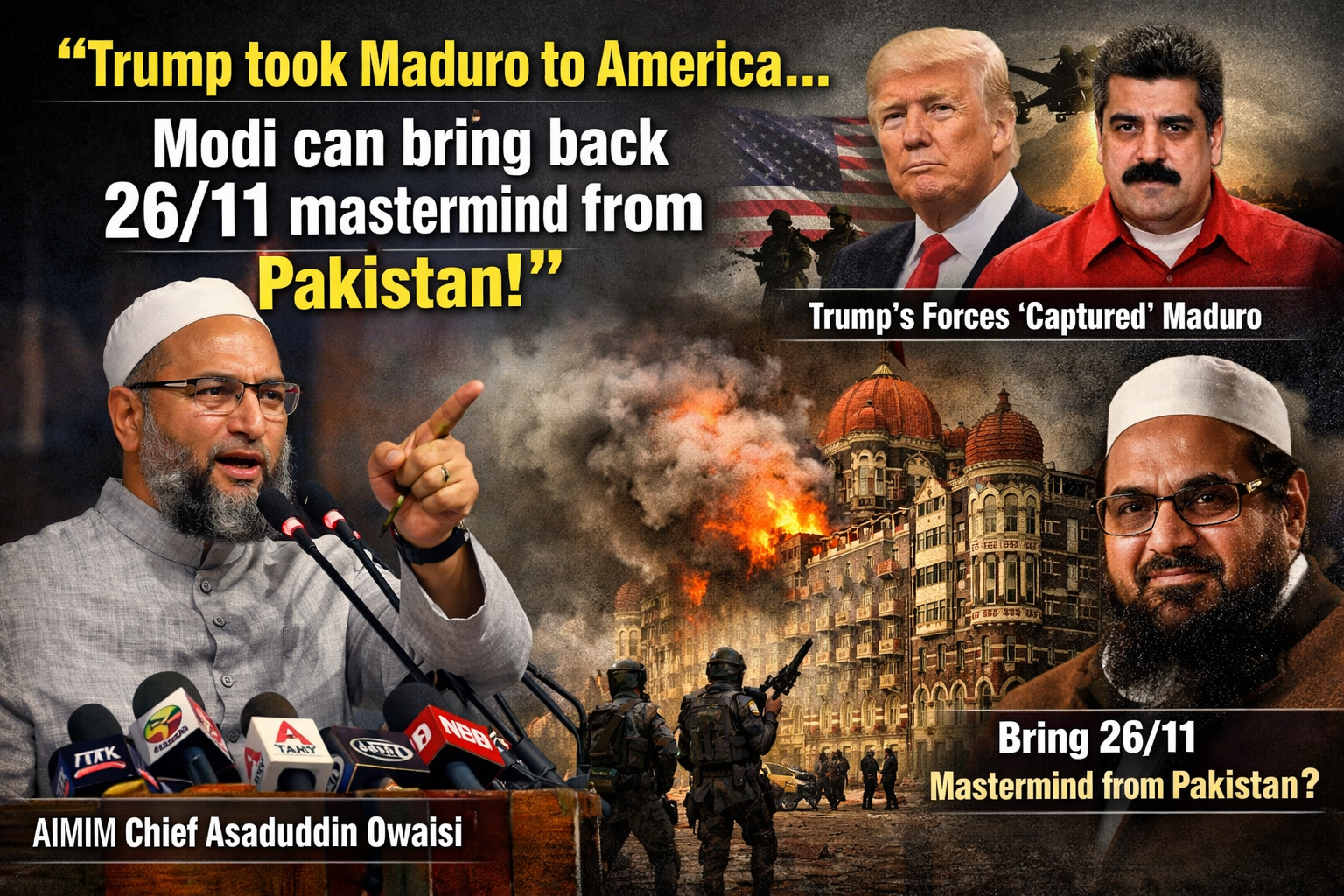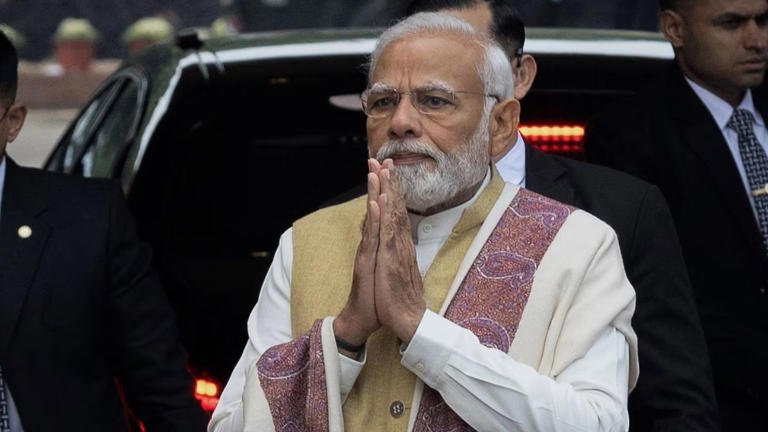“If Indians Don’t Budge…”: Donald Trump Adviser’s New Trade Warning To New Delhi /Washington: The trade tensions between India and the United States appear to be entering a new phase, with a close adviser to former U.S. President Donald Trump issuing a fresh warning to New Delhi. The statement, made during a policy discussion in Washington, signals that a Trump 2.0 administration could adopt an even tougher stance on trade negotiations with India unless certain concessions are made.
The Warning
The adviser, who is part of Trump’s economic policy circle, said:
“If Indians don’t budge, there will be consequences. America cannot keep losing in trade deals while others benefit disproportionately. India is a friend, but friendship cannot come at the cost of fairness.”
While not an official government statement, the comments are being closely watched by diplomats and trade experts in both countries, as they are seen as reflective of the broader Trump worldview that emphasizes “America First” in trade and manufacturing.
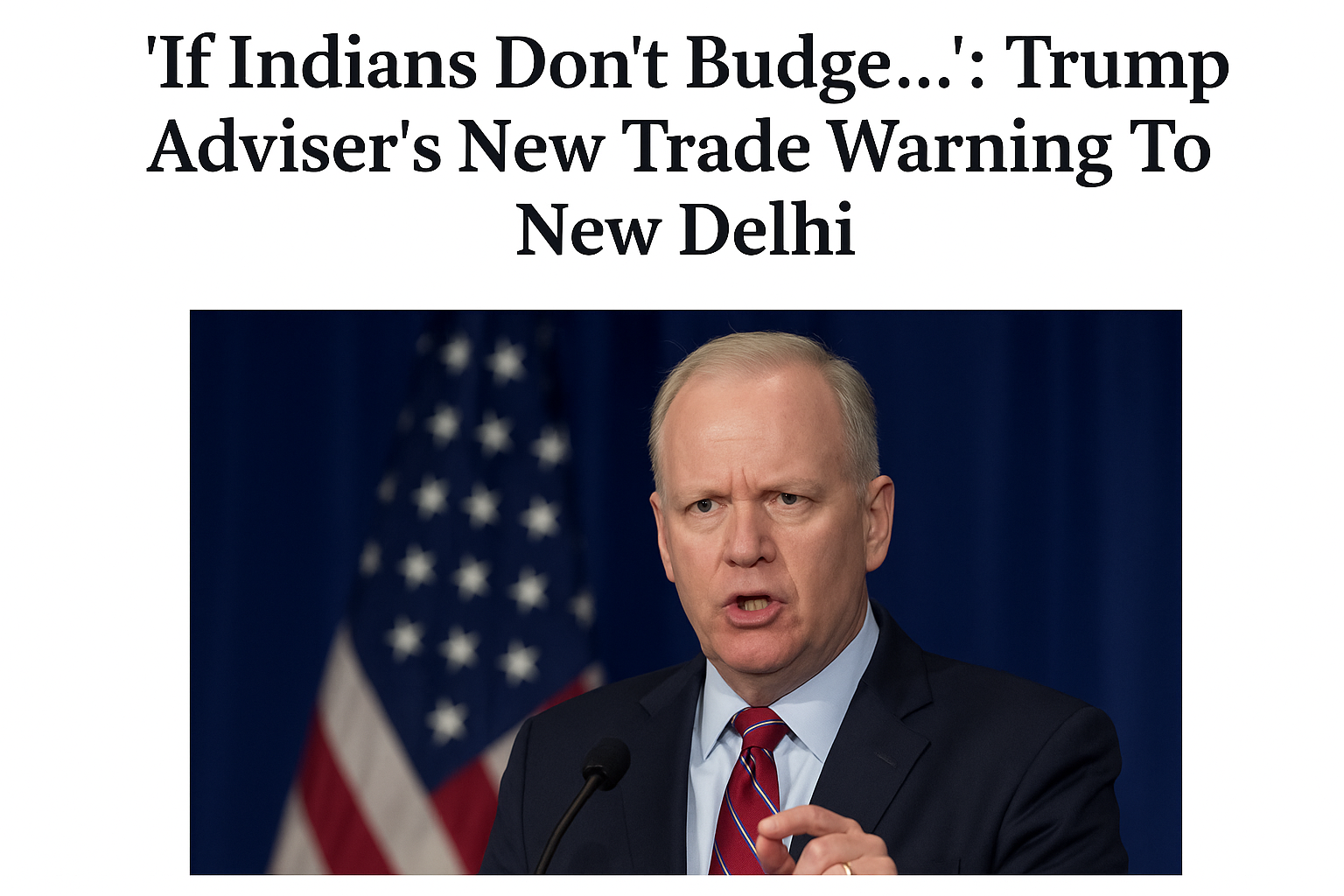
Context: Trump’s History With India
During his first term (2017–2021), Trump repeatedly criticized India’s high tariffs on American goods, famously calling India the “tariff king.” In 2019, his administration revoked India’s preferential trade status under the Generalized System of Preferences (GSP), citing lack of “equitable and reasonable access” to its markets.
This move hit Indian exporters in sectors like textiles, leather, gems, and engineering goods, who had previously benefited from duty-free access to the U.S. market.
With Trump once again emerging as a dominant figure in American politics ahead of the 2025 presidential campaign, his advisers’ remarks carry significant weight for the future of U.S.-India trade relations.
What’s At Stake
The U.S. is India’s largest trading partner, with bilateral trade crossing $200 billion in 2024. Key sectors under focus include:
- Agriculture: The U.S. has long pressed India to lower tariffs on dairy and poultry imports, while India remains protective of its farmers.
- Technology & Digital Trade: Washington has raised concerns over India’s data localization laws and proposed digital taxes.
- Manufacturing & Pharma: India’s generic drug exports are crucial to the U.S., but intellectual property disputes persist.
- Energy: The U.S. wants greater access for shale oil and LNG, while India pushes for long-term supply security.
Trade experts say the balance is delicate: India seeks to expand its “Make in India” initiative, while the U.S. wants wider market access for American goods and services.
India’s Position
Indian officials, while not directly responding to the Trump adviser’s remarks, maintain that India’s trade policy is calibrated to protect domestic interests while fostering global partnerships.
A senior Commerce Ministry official told media: “We will engage constructively with all global partners, including the United States. However, India’s farmers, small businesses, and digital ecosystem cannot be compromised.”
India has also been pushing for greater recognition of its role as a reliable global supplier in pharmaceuticals, IT services, and renewable energy.
The Bigger Picture: Geopolitics & Economics Intertwined
Observers note that Trump’s latest trade rhetoric comes against the backdrop of shifting global alliances. The U.S. continues to court India as a strategic partner in countering China’s influence in the Indo-Pacific. However, trade friction remains a potential stumbling block.
Strategic analyst Michael Kugelman remarked:
“The U.S. needs India in its China strategy, but Trump’s trade-first approach could strain the partnership. If negotiations get rough, security cooperation may continue, but economic ties could face turbulence.”
What Could Happen Next
If Trump returns to the White House, experts warn that New Delhi could face:
- Higher tariffs on exports like textiles, chemicals, and auto parts.
- Stricter visa rules impacting Indian IT professionals.
- Tougher bargaining in agriculture and digital trade.
On the other hand, some believe this tough talk is part of a familiar Trump strategy: set a hardline tone, then push for a “deal” that can be presented as a win for both sides.
The adviser’s blunt message — “If Indians don’t budge…” — underlines the challenges that lie ahead for U.S.-India economic relations. While both nations continue to highlight their “strategic partnership,” trade frictions could test the resilience of the relationship in the months to come.
For India, the balancing act will be clear: safeguard domestic interests while avoiding a trade confrontation with Washington, especially at a time when global economic headwinds are already strong.


